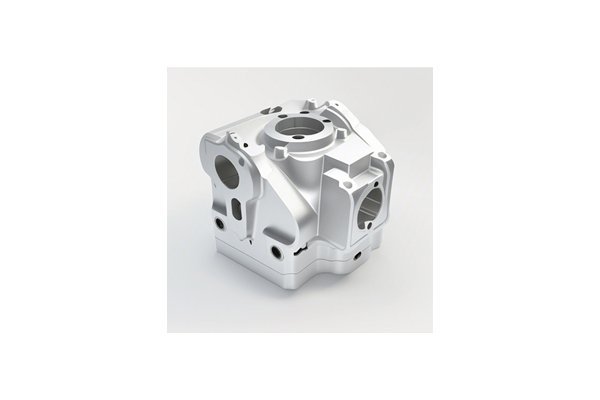Did you know that the global CNC machining market is expected to reach USD 100 billion by 2025? With such staggering growth, it’s clear that Computer Numerical Control (CNC) technology has become a cornerstone in modern manufacturing. But what does this mean for industries that require the machining of complex shapes and designs? As we dive into the world of CNC machining, we’ll discover how this technology can meet and exceed the challenges posed by intricate specifications, paving the way for innovation and enhanced productivity.
The Capabilities of CNC Custom Machining
CNC custom machining stands at the forefront of manufacturing technology, leveraging computer-controlled processes to create highly detailed components with remarkable precision. So how does it work, and what makes it so effective in handling complex designs?
One of the hallmarks of CNC machining is its ability to achieve high levels of accuracy. Traditional manufacturing methods often had limitations in crafting complex geometries, leading to potential misalignment and material wastage. CNC machines, however, utilize digital files and computer programs to ensure every cut, drill, or contour is executed with precision. This capability is particularly important in industries such as aerospace, automotive, and medical equipment, where specifications must meet stringent regulatory standards.
CNC custom machining can process a wide array of materials—from metals like aluminum, stainless steel, and titanium to plastics such as POM and ABS. This versatility makes CNC machining the ideal process for creating parts with complex contours from different materials without compromising on quality. For instance, you might need lightweight, high-strength components for an aircraft or intricate plastic components for consumer electronics. CNC can deliver, provided the right parameters are set.
One of the greatest advantages of CNC machining is its ability to produce intricate shapes that would be impossible or highly time-consuming with manual techniques. Feng shui-inspired designs, lattice structures, or elaborate mechanical parts can all be generated through CNC programs. The end result? Reduced labor costs and a faster turnaround time in production.
CNC machining excels at maintaining consistency. Once a design template is created and programmed into the CNC machine, that specific design can be replicated thousands of times with minimal variation. This repeatability is essential for manufacturing processes that require assembly line production, ensuring that every part fits seamlessly together, regardless of how many pieces are made.
Traditional machining often involves numerous setups and manual adjustments, prolonging the production timeline. CNC custom machining minimizes these lead times by automating many steps in the manufacturing process. By creating custom setups that take into account complex shapes and features, businesses can produce parts more efficiently, maximizing productivity and meeting market demands.
Addressing the Challenges of Complex Shapes in CNC Machining

While CNC custom machining offers remarkable advantages, manufacturers face several challenges when dealing with complex shapes. Let’s explore solutions to these common challenges:
When dealing with complex geometries, defining tolerances becomes critical. Engineers must collaborate closely with machinists to determine appropriate tolerances based on the function of the part and the manufacturing capabilities. Advanced CNC machines often come equipped with technology that allows for real-time monitoring, enabling adjustments to be made on-the-fly. Investing in high-quality machines and employing advanced software for simulation can address tolerance-related challenges effectively.
One key to successful machining of complex shapes is efficient tool path planning. By optimizing the tool paths, manufacturers can reduce machining time while ensuring a smooth cutting process. The integration of advanced CAD/CAM software allows for simulations that can identify potential issues in tool paths before actual machining begins. Additionally, incorporating adaptive toolpath strategies can further enhance cutting efficiency for complicated parts.
The accuracy and effectiveness of CNC machining largely depend on how well the part is secured during the machining process. Complex shapes may require custom fixtures designed to hold the component securely while allowing the CNC machine to access all necessary cut areas. Employing modular fixtures or tool change systems can aid in creating adaptable setups that can accommodate a range of complex designs without the need for extensive reconfiguration.
Choosing the correct material is vital, especially for parts with intricate shapes. Different materials may respond differently to machining processes. Therefore, it’s essential to have an understanding of the material properties, including machinability, thermal stability, and behavior during cutting. Additionally, managing raw material inventories strategically can prevent delays caused by supply chain disruptions.
Many complex designs do not emerge from CNC machining with the desired finish. To mitigate this, manufacturers often need to employ post-processing techniques such as polishing, coating, or surface treatments. These steps can enhance aesthetics, improve corrosion resistance, or bolster surface durability. Understanding when and how to apply these treatments can make the difference between a merely functional part and one that meets customer expectations fully.
As we’ve explored throughout this blog, CNC custom machining is not merely a tool but a comprehensive solution capable of transforming the way we approach manufacturing, particularly when it comes to complex shapes and designs. From its precision and material versatility to the challenges it can address, CNC machining is an indispensable part of modern industry. The seamless integration of advanced software, sophisticated tools, and innovative techniques positions CNC machining as the optimal choice for businesses aiming to stay ahead in a competitive landscape.
Reflecting on the potential of CNC custom machining can inspire new ideas and encourage industries to reconsider how they fulfill their manufacturing needs. In a world where precision, efficiency, and adaptability are crucial, CNC machining stands as a beacon of progressive manufacturing—a technology that’s not just about making parts but about making possibilities a reality.
In the ever-evolving landscape of manufacturing, embracing CNC capabilities is essential for any business striving for excellence and innovation. Therefore, stay informed and think critically about how CNC custom machining can enhance your production capabilities.






